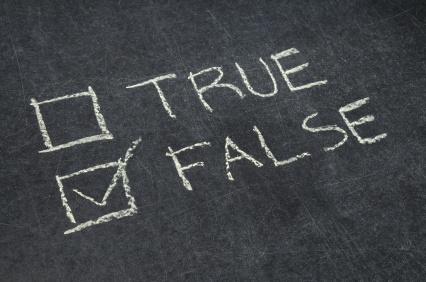Does Denying False Rumors Cause More Harm?
If you’ve ever been the subject of a false allegation, you already know that corrections rarely receive as much attention as the original charges against you.
Public relations professionals have long struggled with the right way to handle false allegations after the truth finally emerges. On one hand, companies could benefit from correcting the record as widely as possible; on the other hand, doing so keeps the conversation alive.

In my experience, most companies opt for a cautious approach that seeks primarily to move on, rather than an aggressive one aimed at correcting the record. A recent article published in The Economist supports their strategy. Three psychologists with the Kellogg School of Management and Stanford Business School concluded that:
“People who read rebuttals tend to forget the denial and remember only the rumor…Instead of denying false rumors, a company should put out a stream of positive messages about itself.”
Their approach is right. For some companies. Sometimes.
But public relations practitioners would be well-advised not to put too much stock in their study. More aggressive responses are a vital part of the PR toolkit, and companies occasionally benefit from fighting back.

Taco Bell’s recent strategy offers a great case in point. When sued in a class action lawsuit for allegedly using only 33 percent ground beef in its “ground beef,” the company swiftly denied the charges and said they used 88 percent beef, plus fillings and spices.
When the law firm bringing the lawsuit dropped its case, Taco Bell didn’t quietly move on. It ran full-page ads in many of the nation’s top newspapers – including USA Today, The Wall Street Journal, and The New York Times – saying, in part:
“We hope the voluntary withdrawal of this lawsuit receives as much public attention as when it was filed. As for the lawyers who brought this suit: You got it wrong, and you’re probably feeling pretty bad right about now. But you know what always helps? Saying to everyone, ‘I’m sorry.’”
In addition, Taco Bell CEO Greg Creed recently said he was contemplating legal action against the law firm, earning even more press attention for the scurrilous charges and subsequent correction.
I admire Taco Bell’s bold approach. It will probably prove successful. But if the three psychologists had their way, Taco Bell’s executive team would have forgone its strategy to rebut the accusation and elected to “pump out positive messages” instead. And that well-reasoned, smart-sounding strategy would have been very, very wrong.
You got mail! Or maybe you didn’t. If you haven’t signed up for our monthly email newsletter full of practical media training and public speaking tips, you’re missing out. Sign up box is in the upper right of the blog.
Related: Taco Bell’s Great Crisis Management (By Steve Bauer)


